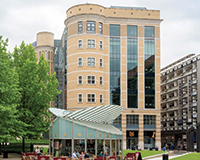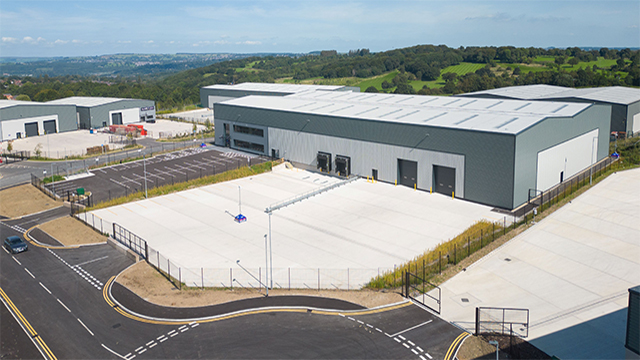 Deutsche Bank’s deal for space at Five Brindleyplace in Birmingham was recognised as EG’s Regional Deal of the Year at MIPIM UK last month. But its significance goes beyond just an office letting.
Deutsche Bank’s deal for space at Five Brindleyplace in Birmingham was recognised as EG’s Regional Deal of the Year at MIPIM UK last month. But its significance goes beyond just an office letting.
It is an event that has transformed the image of the city, showcasing it as a centre for the financial and professional services sector.
Many agents, developers and financial services sector players are, I would guess, sitting in London, curious about Deutsche Bank’s decision to move to Birmingham. I suspect they expect the bank to return to the capital within 12 months. However, it is clear that Deutsche Bank is making Birmingham its home and not looking back.
Since its first investment in 2006, with 30 members of staff moving back-office functions to support the clearing and settling of trades, Deutsche Bank has become the West Midlands’ largest foreign-owned financial services company, employing more than 1,000 staff in a range of roles, including technology, support operations and front-office functions.
The Birmingham office now services 600 clients that were previously serviced in London across debt, listed derivatives and cash equities. These areas have generated a 150% increase in profit for the bank. As a result, it has plans to double its staff levels in the city in the near future.
Deals like this demonstrate the power of regional cities to attract large companies. Birmingham has a sizeable talent pool, low property costs, an outstanding cultural and leisure offer and strong civic leadership. All this as well as recent decisions regarding HS2 investment to improve connectivity and capacity will be helping firms such as Deutsche Bank to make a commitment to the city.
The investment by Deutsche Bank is significant not only for the office market – it also boosts the city’s housing market. Birmingham is experiencing a renewed growth in demand for private rented and open-market housing and many development schemes are now taking shape.
One of the key attractions of the city is its highly skilled talent pool. Five universities and six major colleges make their home in Birmingham, accounting for 73,000 undergraduate and postgraduate students.
The city’s property market provides high quality at prices that are competitive with other global cities. The Deutsche Bank building is part of the award-winning Brindleyplace estate. Following the departure of the building’s previous occupier, BT, Hines and Moorfield undertook a speculative refurbishment of Five Brindleyplace to grade-A standard.
Birmingham has now delivered some of the most prime office space in the UK, such as One Snowhill and Two Snowhill, which were developed by Ballymore and total just under 700,000 sq ft. The quality of this accommodation has also helped to prompt HS2 to move its headquarters to Birmingham, taking 100,000 sq ft for 1,500 staff at Two Snowhill.
All this is just the beginning. Projects such as Paradise Circus, developed by Argent and funded by Hermes Investment Management, will deliver 1.7m sq ft of principally office space.
The recent decision by leaders of the four Black Country councils and Birmingham council to work as a combined authority, representing more than 3.4m people, will facilitate a city/regional approach to drive growth, modernise transport infrastructure, create jobs and improve local skills.
The government and the opposition in Westminster have said they are prepared to pass funding and powers to cities and regions that form a combined authority. The West Midlands will be able to take advantage of that opportunity along with other cities.
And what this means for greater Birmingham and the Black Country is that its renaissance as an economic power will continue. With commitment from the city’s and region’s leaders to this agenda, further major investments from international companies are set to follow.
Waheed Nazir is director of planning and regeneration at Birmingham city council










